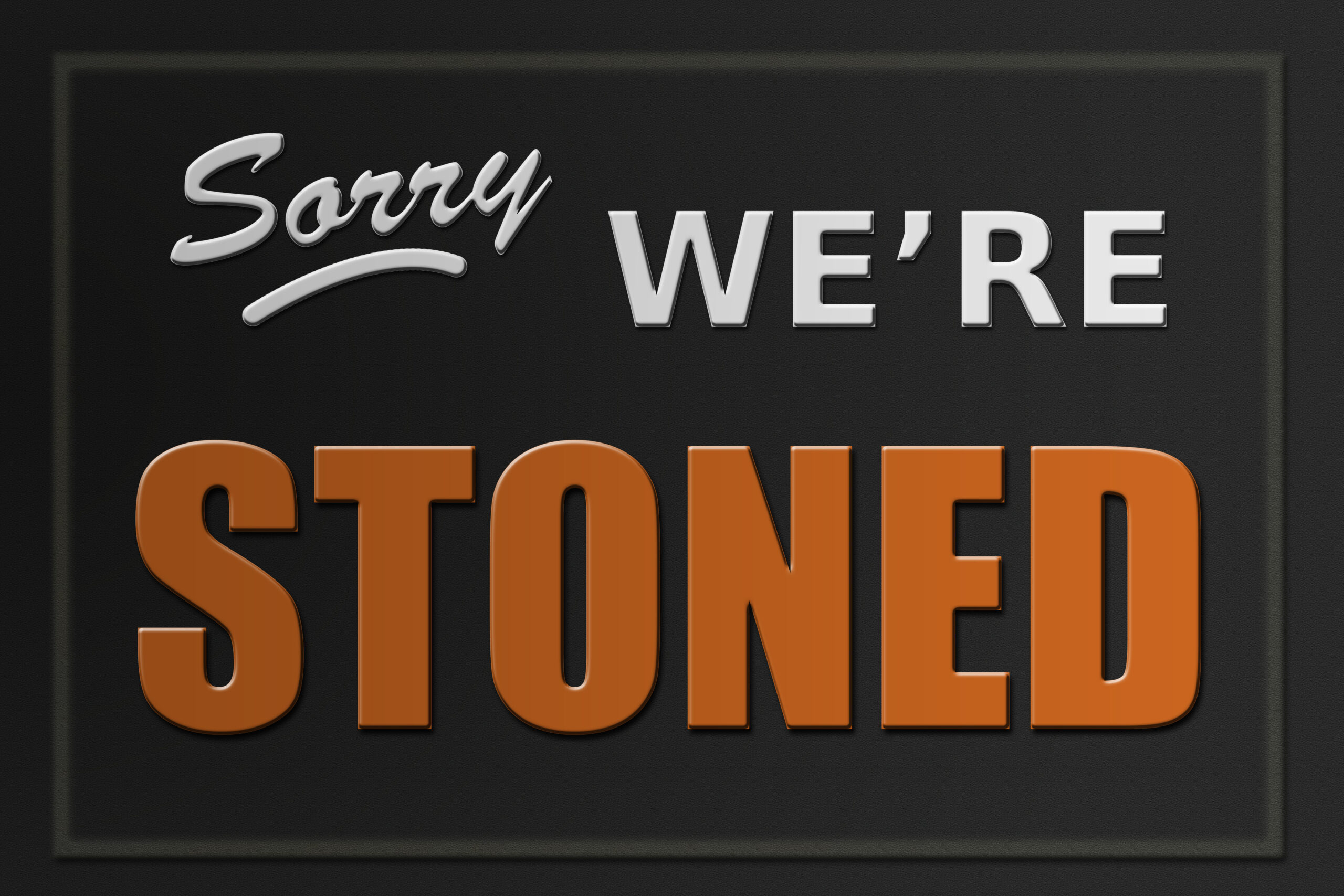
A history of the origins of the term “stoner”
The word stoner has been used to describe cannabis users for ages. While “stonehead” isn’t a bad word per se, it tends to be used to stigmatize and demean enthusiasts of the plant.
If you search the term in Google, the results do not show ordinary people using cannabis. Chances are, you’ll encounter cultural appropriation, pop culture references, and a plethora of red-eyed stereotypes.
But why?
Stoner derives from stoned, which dates back to biblical times. In the past, so-called sinners were punished with stones. Getting stoned was more than a physical act, there was also the element of public shaming as your peers threw insults and rocks at you.
Getting stoned was for the guilty, unkempt, and unsavory types, not productive members of society. This act, and the humiliation it brought, laid the groundwork for some of the casual and innocuous, yet stigmatizing words and phrases associated with cannabis use.
Stoned without the stones
In the ’20s and ’30s, people started using “stoned” or “stonedrunken” as slang for people who were heavily under the influence of alcohol – they looked beaten, battered and exhausted as if they were stoned.
Etymologists are unsure of when the definition of stoned shifted from punishment to an alcohol-related term. The first citation in the Oxford English Dictionary for the term ‘stoned’ dates back to 1953, defined as ‘under the influence of drugs’.
This narrative was heavily influenced by the glossary section of The Traffic of Narcotics, co-written by Harry J. Anslinger, who was notorious for anti-drugs and racism and fueled the War on Drugs.
Cannabis lovers are referred to as “stoneheads”.
By 2022, the Oxford Dictionary is taking a more focused stance on its definition of “stoned”: “A condition in which one behaves or thinks abnormally due to the effects of a drug such as marijuana or alcohol.”
“Most cannabis slang in North America comes from the jazz music of the 1930s and ’40s,” says Dave Dormer, a Calgary-based journalist who also runs Cannanaskis, a travel company focused on cannabis history.
“Musicians were among the main consumers of cannabis at the time and would insert words into their songs to talk about cannabis without anyone knowing.”
Soon the term stoned became a natural and common term for a cannabis fueled state of mind.
We all live in glass houses (so don’t throw stones)
Getting stoned went from a horrible act to a description of looks or actions associated with alcohol. It ended up becoming synonymous with cannabis intoxication.
It can feel like we’re forever clinging to the stereotype that cannabis users look battered or battered – a stigma that’s hard to break. The best way to exceed expectations for a cannabis lover’s looks is to live life authentically as the best stoner self.
T
Do you use the word “stoned” to describe your condition?
— Roderick MacDonald 🏳️🌈🍁 him/her (@smacdonald10) January 23, 2022
Roderick MacDonald
Roderick is a freelance writer and content creator focused on the psychedelics and cannabis industry and communications director at Known Group. After a decade in the lab researching the genetics of cancer and aging, he adopted the lifestyle of a digital nomad — learning French in southern Quebec before ending up in Belgium with his partner. Roderick is co-founder of Psillow, an online resource facilitating education about psychedelic mushrooms and the thriving underground market that remains the only viable point of entry in Canada.
Check out Roderick MacDonald’s articles
By submitting this form, you are subscribing to Leafly news and promotional emails and agreeing to Leafly’s Terms of Service and Privacy Policy. You can unsubscribe from Leafly email communications at any time.

Post a comment: